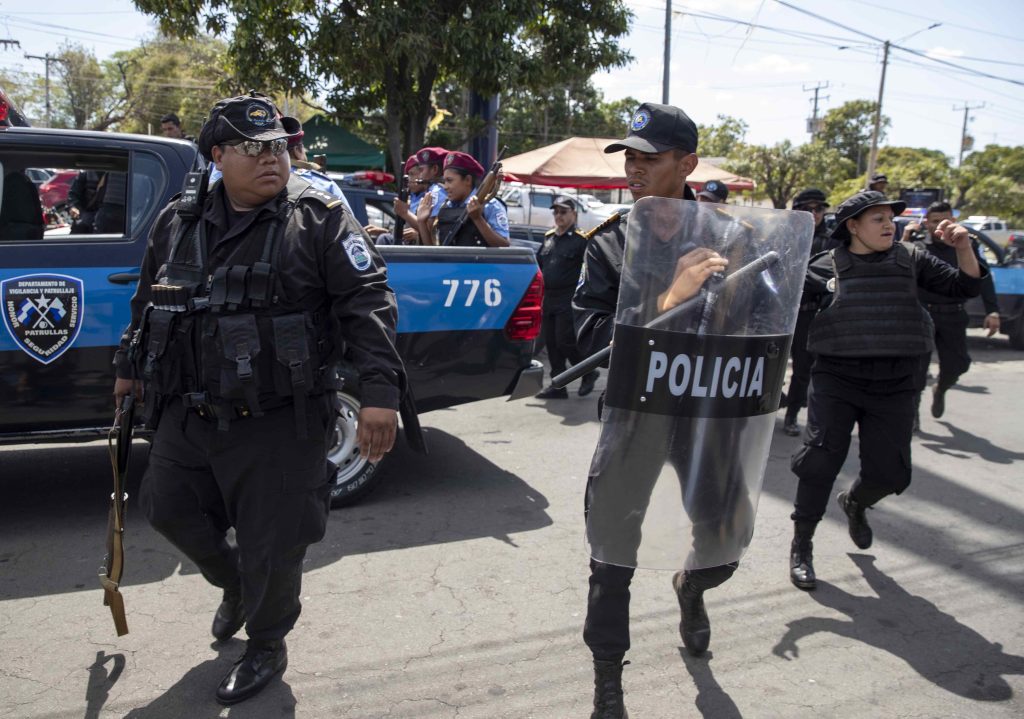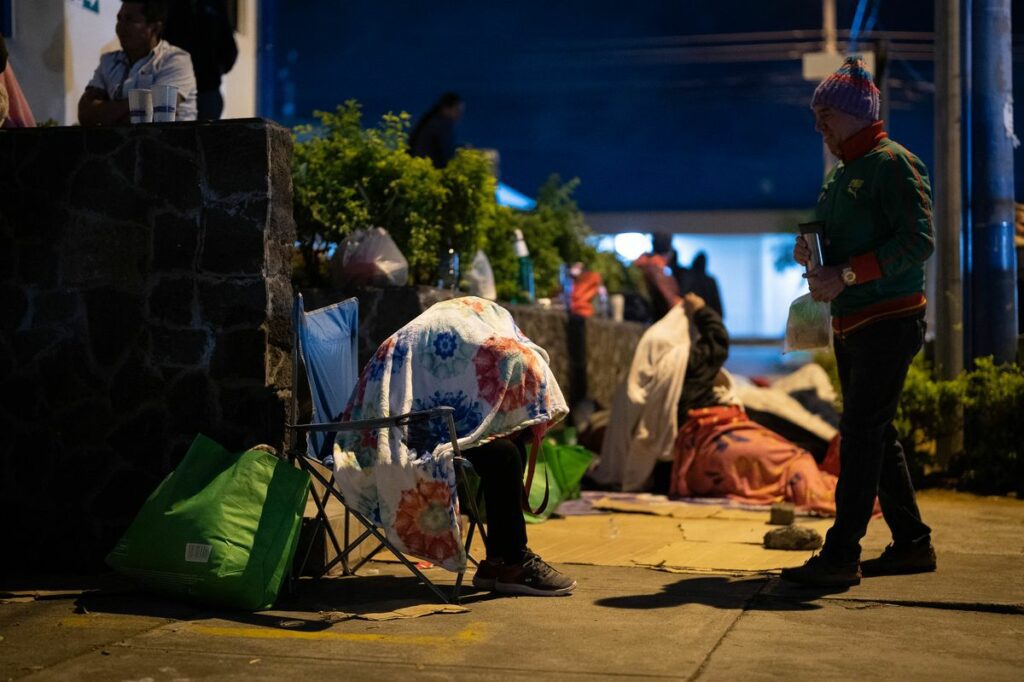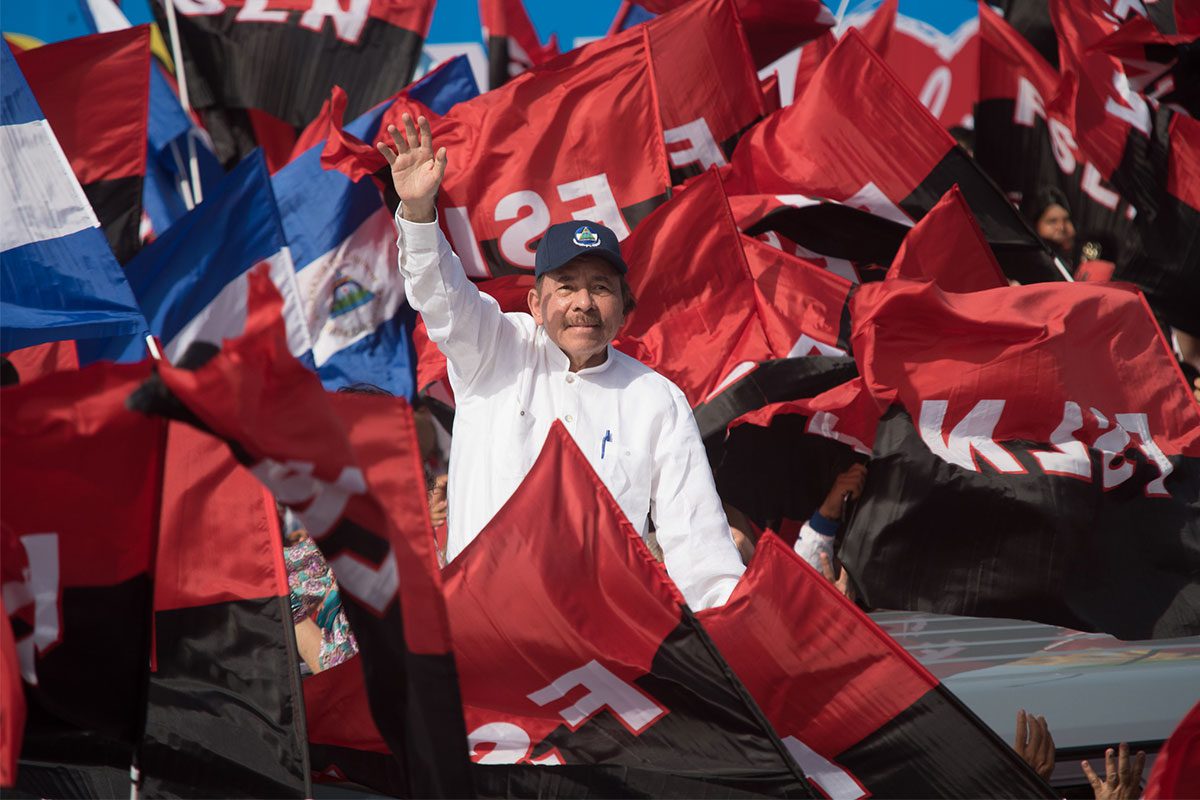For the first time, Nicaragua reports historic drops in trust in political institutions within the records of the regional Americas Barometer survey, as per the 2023 edition titled The Pulse of Democracy in Nicaragua, conducted by LAPOP Lab at Vanderbilt University.
Among the key findings of the survey is a “constant decrease in trust in political institutions.” This decline has been observed since the onset of the sociopolitical crisis in 2018 and experienced a sharp drop during 2023, according to Manuel Cruz, director of research at the Kimberly Green Latin American and Caribbean Center at Florida International University.
According to the survey data, only 34% of the population has trust in municipal governments, compared to the 42% recorded in the previous edition. Cruz notes, “Trust in local governments is the lowest we have recorded since we started conducting the survey 21 years ago.”
Other institutions with high levels of distrust include the National Assembly, which only gained the approval of 29% of those surveyed, the Executive with 34%, and elections, which reached their lowest level at 31%, compared to 51% a decade ago.
Nicaragua’s political system with poor citizen support
Furthermore, Nicaragua ranks among the main countries in the region with the lowest levels of support for the political system, trailing only behind Haiti, Peru, and Trinidad and Tobago.
For this survey, 3004 Nicaraguans were interviewed. Fernanda Boidi, Director of Fieldwork and Regional Associations at LAPOP, highlighted that Nicaragua, along with Haiti, was the only country in the region where people could not be interviewed in person, as is normal in other countries.

Media affected by distrust
Distrust has also extended to the media “in general,” according to Cruz. Only 43% of the population trust Nicaraguan media, despite being one of the institutions with the highest support among the population since the survey started in 2004.
“This is noteworthy when compared to the 2004 records, which showed a confidence level of 71%. In the first decade of the 21st century, the media was the institution that had the most trust from Nicaraguans. This has changed completely. The media, in general, receives levels almost comparable to those of government institutions,” he explains.
In response, the Americas Barometer specifically inquired about trust in independent media, but only recorded a 45% approval, a two-point increase over the general media. According to Cruz, this difference is almost insignificant and reflects the population’s skepticism.
Nicaragua, the country with the highest crime victimization
Nicaragua reports the third-highest crime victimization rate in the Americas, according to the Barometer. The only countries surpassing Nicaragua in this aspect are Argentina and Ecuador, highlighting the security crisis the country is facing.
“Nicaragua records levels of insecurity well above countries like Honduras and El Salvador, which exhibit a third of the victimization shown by Nicaragua. Insecurity has increased significantly in this country,” he expresses.
In 2023, 30% of Nicaraguans surveyed claimed to have been victims of crime in the past year. The survey indicates that this figure is slightly lower than the 33% recorded in 2021 but much higher than the years before 2019, which were below 18%.
According to Cruz, the increase in insecurity is due to multiple factors, primarily related to the failure of state institutions tasked with ensuring citizens’ safety.
As an example, Cruz points out that requests for bribes from the National Police have doubled since 2019, according to Nicaraguans’ responses. The survey recorded that in 2023, more than one in five people were asked for a bribe by an officer, making Nicaragua the second country in the Americas with the highest police bribery requests.
Trust in the judicial system to punish lawbreakers also reached its historic low, similar to the police, with less than a third of the population expressing credibility.

Nicaraguans are the most prepared to migrate
Nicaraguans not only have one of the highest intentions to migrate but are also the most prepared for migration.
The study establishes that 50% of the Nicaraguan population intends to leave the country, compared to 30% recorded in 2019. Of this 50%, at least 23% are highly prepared for migration, and 19% have intermediate preparation.
Cruz explains that this means the majority of Nicaraguans intending to migrate have taken actions to make this happen. “Nicaragua is the third country with the highest intentions to migrate, but when adding questions to specify that intention, we see that Nicaragua is the country with the highest level of readiness to leave,” he states.





